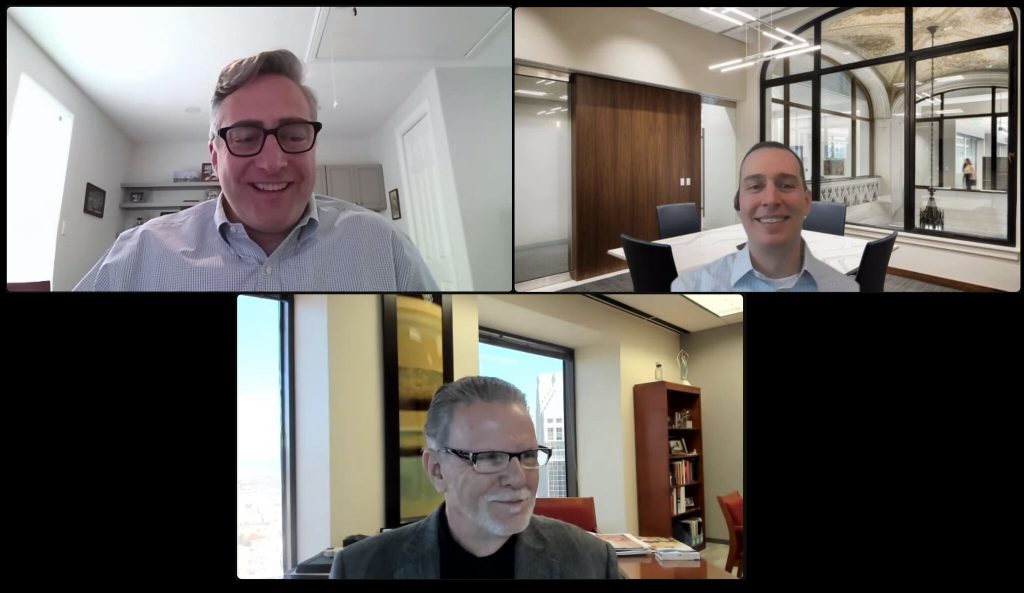The Energy Workforce and Technology Council’s HSE, HR and Government Affairs committees hosted a townhall on January 14 to discuss the impact of a Supreme Court ruling on the OSHA Emergency Temporary Standard (ETS) regarding a new mandatory COVID-19 vaccination policy.
Participants from more than 45 companies joined the townhall to listen to a breakdown of the court ruling, engage with legal experts on what to expect in the coming weeks, and have an open discussion centered around industry best practices. This townhall was the fifth in a series of meetings to help develop and disseminate best practice recommendations.
The session opened with several updates to the legal developments surrounding the ETS decision.
Supreme Court Ruling: Private Employer ETS Stayed Indefinitely
On January 13, the Supreme Court blocked the Biden Administration from enforcing its sweeping vaccine-or-test requirements for large private companies with more than 100 employees. In a separate-but-related ruling, the Court allowed a vaccine mandate to stand for medical facilities that take Medicare or Medicaid payments. The rulings take effect immediately and will remain in place until legal challenges over their constitutionality are resolved through the justice system, and possibly through the Supreme Court.
One of the primary factors behind the Court’s decision to uphold the stay was the Court’s belief that OSHA does not have the authority to promulgate such a broad standard.
“Although Congress has indisputably given OSHA the power to regulate occupational dangers, it has not given that agency the power to regulate public health more broadly. Requiring the vaccination of 84 million Americans, selected simply because they work for employers with more than 100 employees, certainly falls in the latter category,” the unsigned opinion in the businesses case says.
Despite the decision by the Supreme Court, OSHA is continuing to evaluate other options to ensure workers are protected from COVID-19. Although it may spark another series of legal battles, OSHA plans to use “its existing authority to hold businesses accountable for protecting workers on the job, including under the COVID-19 National Emphasis Program and General Duty Clause.”
A third vaccine mandate for federal contractors, on hold after lower courts blocked it, has not been considered by the Supreme Court.
State Policies
In the wake of the Supreme Court decision to uphold the stay of the federal private employer ETS enforcement, powers have now been conferred upon the states to decide whether or not to allow private employer mandates. As of January 11, 13 states have fully or partially passed legislation to ban employer vaccine policies: Arizona, Arkansas, Florida, Georgia, Idaho, Indiana, Kansas, Montana, New Hampshire, North Dakota, Tennessee, Texas and Utah. While some of these bans refer only to state-based employment, there is clear evidence that a patchwork of different legal opinions is going to emerge on a state-by-state basis.
To address this situation, Council Member Christian Antkowiak, Buchanan, Ingersoll & Rooney PC, encouraged Member Companies to stay up-to-date on their state’s policy on mandates.
“It is important if you are a multi-state workforce that you recognize the state-by-state regulations on mandates and how they may impact each of your locations,” Antkowiak said.
Antkowiak explained that even though there is an emerging mishmash of mandate-based laws between states, most companies are backing off of their nationwide policies.
Industry Best Practices
After working through the legal breakdown of the mandate, Member Companies had an opportunity to discuss their company’s best practices regarding COVID-19 reporting protocols, led by HSE Committee Chair Gary Childress, Oil States Energy Services. Several topics included:
- Developing methods to deal with broad interruptions in general business due to surges in cases
- Continuing to promote vaccination among employees and methods of increasing the vaccination rates of employees in the field
- Examining parts of the ETS that are salvageable and will promote better workplace safety
- Methods of how to handle a vaccine requirement with new hires
- Enhanced steps for COVID case monitoring, including a daily spreadsheet of information that shows a full spectrum of types of cases (exposure, contracted, etc.)
- Evaluating how to set up a monitored testing scheme for remote employees
For more information about the HSE Committee, contact Council COO Molly Determan.
Phillip DeBauche, Director, Environmental and Technical, writes about the Council’s environmental and HSE efforts. Click here to subscribe to the Council’s newsletter, which highlights industry practices, workforce development, Council activities and more.





